 The politics of Identity in Africa: Diversity and Inclusion
The politics of Identity in Africa: Diversity and Inclusion
Prof. Tal Edgars
July 07, 2023
In this paper, I would like to achieve three objectives. Firstly, I will highlight the problem at stake: what does it mean to speak of African identity? Indeed, it is not obvious that we all have the same understanding when we use concepts to express reality. There are concepts which are not easily dealt with. For instance, the case of the concept of globalization that is so much used today, in different and conflicting ways, is eloquent. It is the same with the concept of identity. So, what do we mean by identity? More precisely, what do we mean by African identity? To clarify concepts that we use is an important step in order to avoid any semantic confusion.
Secondly, clarification of terminologies will pave the way to explore and critique what I would call schools of thought on the issue of African identity. There is an extensive African literature on this topic. This goes from negritude literature and all the literature before and after independence to the present day. I wish to distinguish four schools of thought that represent four models through which African identity has been or is often thought of. My contention here is that these four models have failed to define as well as to promote a sound, dynamic and vibrant African identity. They all fall into the trap of one dimensionality or exclusionism. The approach of presenting an African identity at the expense of other dimensions needs to be reconsidered. The end result of the four models reveals an inadequacy in their dealing with the question of African identity.
The third objective is an attempt to go beyond the existing models of African identity by reconstructing a new model that can help us to build an African identity that is positive, dynamic, and appropriate to today’s context.
See publication
Tags: Design Thinking, Diversity and Inclusion, Leadership
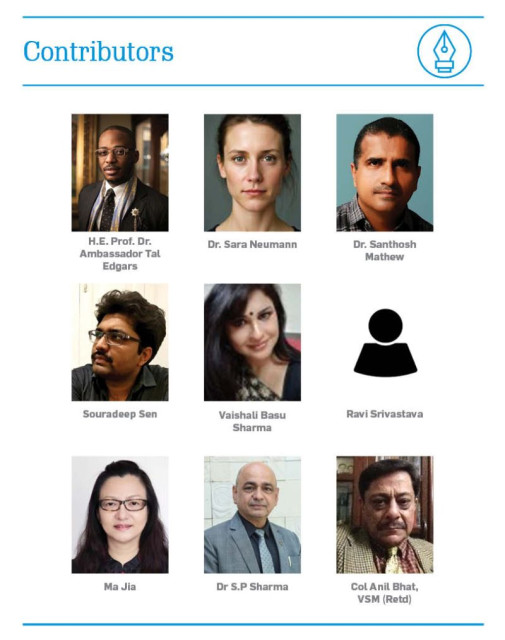 Role of Women in Shaping Foreign Policy
Role of Women in Shaping Foreign Policy
The Diplomatist
March 23, 2024
Before the end of the Cold War, only a few women had ever served as foreign ministers anywhere in the world. Since the early 1990s, however, women have frequently served in this capacity, though they are still a minority in foreign policy-making.
In September 2018, Canada and the European Union co-chaired the first ever meeting of female foreign ministers; eighteen of the almost thirty serving female foreign ministers attended, from countries spanning five continents (France24 2018).
The growing number of women in the upper echelons of foreign policy-making institutions raises an obvious question: will they make a difference to foreign policy decisions? Anne-Marie Slaughter (2012) argued that more women in top foreign policy jobs ‘would change the world far more than you think, from giving peace talks a better chance to making us better able to mobilize international coalitions to reordering what issues governments even choose to work on’. Francis Fukuyama (1998) claimed that ‘a world run by women would follow different rules’: it would be ‘less aggressive, adventurous, competitive, and violent’ (p. 27). Networks have burgeoned to encourage women to consider or remain in a career in foreign affairs.
Contemporaneously, Sweden and Canada have declared they will pursue a ‘feminist foreign policy’, and several states have pursued pro-women norms such as the implementation of UN Security Council Resolution 1325 (2000) on women, peace and security, and increasing women’s participation in decision-making (Aggestam and Bergman-Rosamond 2016; Davies and True 2017; Hudson and Leidl 2015; Richey 2001).There is, however, very little academic literature on women in foreign policy-making and their impact on foreign policy-making including outcomes. Furthermore, there has been little use of Foreign Policy Analysis (FPA) approaches to try to investigate these questions.
FPA opens the ‘black box’ of the state and provides explanations of how and why foreign policy decisions are made, which puts individuals and groups (from committees to ministries) at the centre of analysis. Yet the sex of decision-makers has rarely been included as a variable or factor to take into account when analysing foreign policy-making. Nor, as Anne Marie D’Aoust (2012) notes, has ‘feminist foreign policy theory’ developed within FPA, in contrast to the development of feminist approaches in International Relations (see also Achilleos-Sarll 2018).
See publication
Tags: Change Management, Future of Work, International Relations
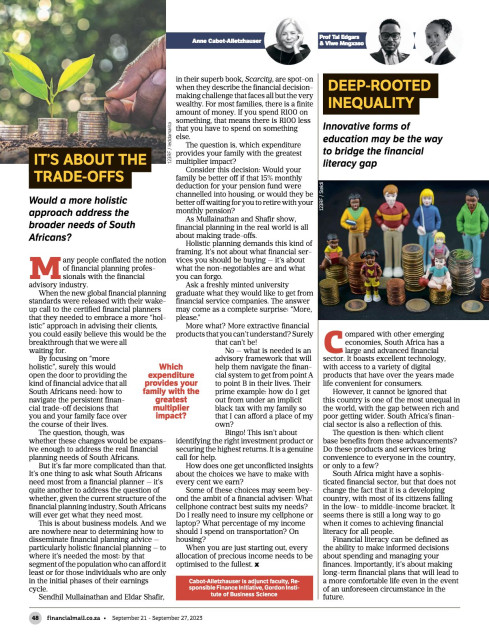 Can South Africa Make the Great Shift? Why financial planning needs to go holistic.
Can South Africa Make the Great Shift? Why financial planning needs to go holistic.
Collective Insight- Financial Mail
September 21, 2023
This edition of Collective Insights developed like a meme —how it started vs how it ended. The initial premise was to collect commentary from the financial planning industry on the new global financial planning standards introduced earlier in the year. This question, however, gave our contributors a chance to highlight the bigger problems that are plaguing the industry in South Africa. Clear themes emerged from the writings that showcased the issues still to be addressed in South Africa to ensure that financial planning and advice can be offered to the greater South African public holistically, equitably and inclusively. This edition will focus on the problems identified by our contributors, highlight some of the issues that cause these problems, and offer possible solutions and industry trends that may assist in alleviating these issues in future. We are indebted to people such as Lelané Bezuidenhout, Anne Cabot-Alletzhauser, Tal Edgars, Gavin Smith, Lizl Budhram, Viwe Mngxaso, Gareth Collier, Jackie Palframan, Caretha Laubscher, David Crosoer and Kobus Kleyn (aided by ChatGPT) for their thoughtful contributions to this d i s c u s s io n . But this is just the start of the discussion. It serves to focus our attention. What needs to follow is the hard work of determining:
What needs to change in our training of financial professionals to better equip them for South African realities;
How we shift the focus of the industry from saving for retirement to addressing the financial trade-off decisions that individuals and families need to make every day of their lives;
How we model the consequences of trade-off decisions so that South Africans can make better choices to address those family needs;
How we create a business model that will make all of this financially viable but not affect the quality of advice; and
How we provide an ongoing advisory process to a population where financial literacy may still be wanting and where access to digital support may still mirror the level of inequality that appears in other parts of South African society.
See publication
Tags: AI, Blockchain, FinTech
 WHAT THE GLOBAL ECONOMY LOOK LIKE IN 2023?
WHAT THE GLOBAL ECONOMY LOOK LIKE IN 2023?
The Diplomatist
January 31, 2023
According to GBSH Consult Group’s most recent analysis on the State of the Nations, “predictions are hard to make in the current environment, 2022 has been a dismal year for economic forecasts and 2023 will not be any easier to read,” the report in the recent analysis indicates that, with all the “black swans”
[extremely rare events with very negative consequences] and “gray rhinos” [slowly emerging, predictable yet ignored threats] emerging over the last few years, forecasting has become even more difficult. But the key question for 2023 is whether central banks will be able to temper inflation. Perhaps they won’t
be able to get it down all the way to the 2% target, but perhaps enough to avoid a recession or at least a deep one. Even though there are significant regional differences, the stakes are very high everywhere.
Preceding a strong rebound in 2021, the global economy is entering a pronounced slowdown amid fresh threats from COVID-19 variants and an ongoing rise in inflation, debt, and income inequality that could endanger the recovery in emerging and developing economies, according to the World Bank’s latest
Global Economic Prospectus report.
See publication
Tags: Business Continuity, Business Strategy, Predictive Analytics
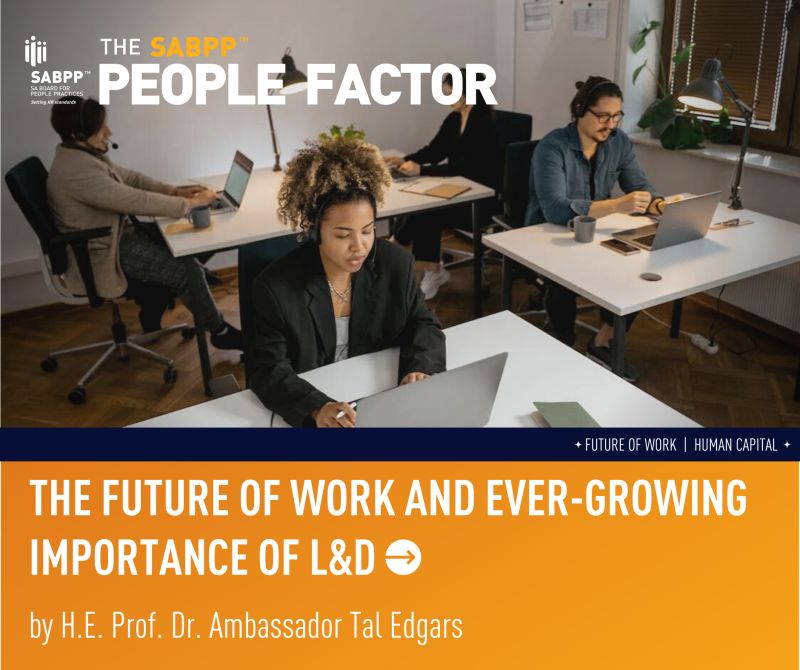 The SA Board of People Practices - People Factor 2022 - The future of work and ever-growing importance of L&D
The SA Board of People Practices - People Factor 2022 - The future of work and ever-growing importance of L&D
South Africa Board of People Practices- Settings HR Standards
January 26, 2023
With reskilling being critical to organization success, the transformation of the learning function is beyond doubt going to follow suit.
Snapshot
Learning is no longer only a retention measurement, but overtime has become key in realizing business strategy.
In the future of work, L&D is about building a culture of continuous learning throughout the organization.
L&D will need to undergo a significant transformation to successfully reimagine learning.
In the current edge of constant change and scarcity, the disruptive workforce landscape requires organisations to largely restructure the way they are doing work, which has a significant impact on the capabilities that business leaders expect from their people. In addition, automation may displace 85 million jobs by 2025, whereas time now spent on tasks will be equally divided between people and machines. For these reasons, workforce roles will change and so do the skills needed to perform them.
See publication
Tags: Design Thinking, HR, Leadership
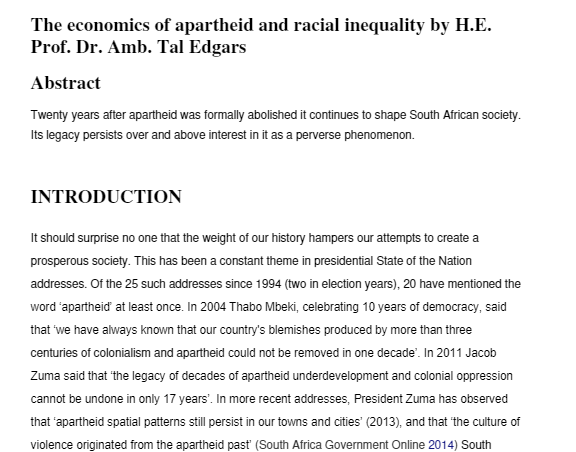 The economics of apartheid and racial inequality by H.E. Prof. Dr. Amb. Tal Edgars
The economics of apartheid and racial inequality by H.E. Prof. Dr. Amb. Tal Edgars
Figshare
December 22, 2022
It should surprise no one that the weight of our history hampers our attempts to create a prosperous society. This has been a constant theme in presidential State of the Nation addresses. Of the 25 such addresses since 1994 (two in election years), 20 have mentioned the word ‘apartheid’ at least once. In 2004 Thabo Mbeki, celebrating 10 years of democracy, said that ‘we have always known that our country's blemishes produced by more than three centuries of colonialism and apartheid could not be removed in one decade’. In 2011 Jacob Zuma said that ‘the legacy of decades of apartheid underdevelopment and colonial oppression cannot be undone in only 17 years’. In more recent addresses, President Zuma has observed that ‘apartheid spatial patterns still persist in our towns and cities’ (2013), and that ‘the culture of violence originated from the apartheid past’ (South Africa Government Online 2014) South Africa Government Online, 2014.
See publication
Tags: Leadership, Business Strategy, Diversity and Inclusion
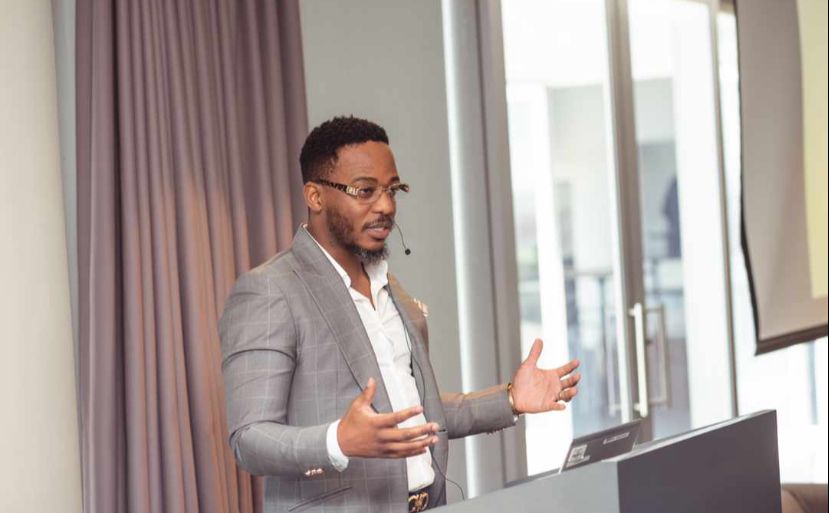 ANALYSIS: UNITED NATIONS’ PERFORMANCE IN THE LIGHT OF CONTEMPORARY GLOBAL CHALLENGES by Prof Tal Edgars
ANALYSIS: UNITED NATIONS’ PERFORMANCE IN THE LIGHT OF CONTEMPORARY GLOBAL CHALLENGES by Prof Tal Edgars
The Diplomatist
December 13, 2022
It is an undeniably fact that the United Nations plays an important role in our world. Since its establishment, its main aim is to be a beacon of international peace and security in all means. However, the organizations recently suffered from a lot of institutional, political and other problems, as well as problems within its significant organs like General Assembly, International Court of Justice and most importantly, the Security Council. The United Nations has showed a lot of failures and inactions in tackling and solving a lot of contemporary political conflicts, civil wars, and humanitarian crises that have been escalated since the Arab Spring’s revolutions in 2011. Moreover, the problems it suffers from have become more severe, overwhelming and have been threatening its integrity, objectivity, credibility and effectiveness in the eyes of a lot of scholars, international experts, countries and populations.
Therefore, I intend to give a critical analysis to the current functioning of the United Nations organization.
See publication
Tags: Business Continuity, Business Strategy, International Relations
 The viability and economics of township economies
The viability and economics of township economies
Prof. Tal Edgars
June 20, 2023
Townships have a long and complicated history in South Africa. Before 1994, the townships were forced to function outside of the mainstream economy and so were a major tool in the racial segregation and economic marginalisation of black people. After 1994, the institutionalised system of racial segregation came to a formal end and the government has since worked to integrate the townships into the formal economy. However, the formal disbandment of the previous system did not eliminate these underdeveloped, (typically) urban residential areas located on the outskirts of metropolitan areas.
Currently there are over 500 townships in the country, whose combined land mass surpasses that of Johannesburg and Durban combined and which are home to an estimated 40% of South Africa’s urban population. Much like the rest of the country, townships are plagued with high unemployment rates.
Most township businesses are necessity-based and unable to grow beyond a store front or small-scale operation. Additionally, these businesses tend to operate informally, with low financial and employment returns. The World Bank estimates that only 15% of township enterprises are formally registered, compared with 30% of similar enterprises in urban areas, and they generally do not provide goods or services that reach larger markets or create quality jobs.
Despite these characteristics, governments at various levels have focused on leveraging township communities, and the entrepreneurs and small businesses that operate within them, to support economic growth at the provincial and national levels. Initiatives have been implemented over the last few decades to support township small businesses, though many of these efforts have been criticised as only improving townships at a superficial level, rather than an ecosystem level. The ineffectiveness of these interventions is evidenced by the stagnant state of the overall South African MSME sector over the past decade, as the total number of MSMEs in the country dropped by nearly 300,000 between 2008 and 2017.
See publication
Tags: Business Strategy, Entrepreneurship, Future of Work
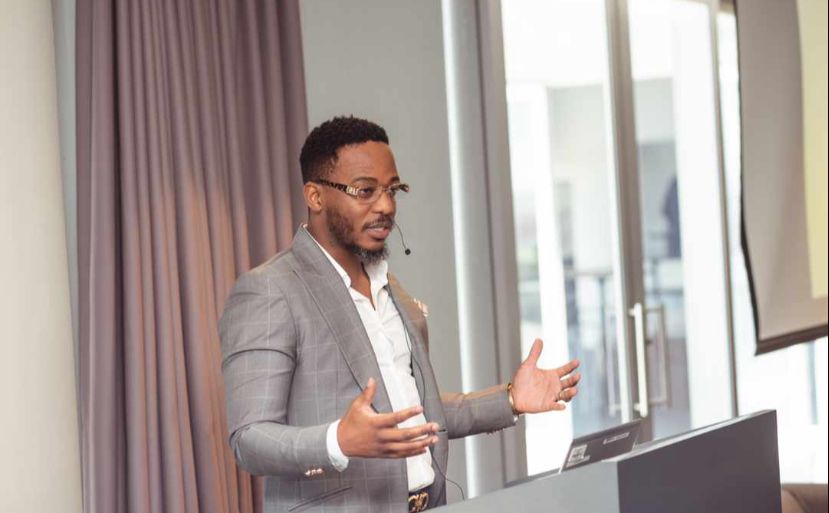 Futureproofing through learning and development by using design thinking: A case study of South Africa
Futureproofing through learning and development by using design thinking: A case study of South Africa
Prof. Tal Edgars
May 26, 2023
Constructivist learning is epistemologically positioned in viewing the world with multiple knowledge interpretations and construction. Learning is therefore both contextual and relational, it is about making meaning, which is personal and unique to the individual. For as Biggs (2003, p. 13) states:
Learning is thus a way of interacting with the world. As we learn, our conceptions of phenomena change, and we see the world differently. The acquisition of information in itself does not bring about such change, but the way we structure that information and think with it does.
Developing skills and capabilities, such as those indicated above, that focus on self- development requires learning and development proffesionals to possess a heightened awareness of themselves as professionals and commit to continuous learning, self- development, and renewal. Therefore, “employees must be given the opportunity to
develop their own personal and collective positions on human capital issues, and to discover possibilities for activating those positions through praxis” (Boyce et al., 2012, p. 66).
It is true today as it was yesterday that workers across each industry and sector will leave to pasture new if they feel undervalued with no growth plan. Upskilling is a solution but not the be all. As demands and delivery requirements change to meet the needs of today’s customer, how can organisations keep pace? Teams have no option but to learn new skills, update on old skills to meet the new. The saying, every day is a learning day rings true to the masses but how can this be done in a structured and strategic way?
The field of learning and development is in need of new design thinking. New approaches that capture the challenges of making strategies both real and realisable. Approaches that bring life to the human dimension of creating new futures for institutions, that move us, beyond the sterility of traditional approaches in organisations. The resuscitation of an old approach that offers new possibilities - the metaphor of strategy as a process of design and how to use that to future proof through learning and development.
See publication
Tags: Business Strategy, Change Management, Design Thinking
Leadership in Africa
Prof. Tal Edgars
December 07, 2022
The paper argues that, there is a disconnection between the rulers and the ruled, and that the African nations can truly develop only when the leadership question is rightly settled. Drawing lessons from Madiba Mandela conundrum, we argue the thesis that, without comprehension, mental magnitude, spiritual depth, selflessness and incorruptibility which are the core indigenous African leadership qualities that defined the Mandela persona, our long walk to democratic consolidation will ever remain a distant dream.
A conclusion is here argued that, there is need for a revolution in the aims and methods of power engineering, so that the basic aim becomes the promotion of socially, economically and politically important desires of man; the promotion of wisdom in leadership by rational means, not by knowledge means. Such is argued as the new Africa of the Twenty-First Century. This is a call on African leaders to domesticate the capacity and ability to appreciate and grasp the salient details as well as the practical and temporal implications of a given problem or situation; to lead and live by the personal example set by Madiba Nelson Mandela, one leader crafted of gold and delivered to Africa for leadership lessons.
See publication
Tags: Design Thinking, Diversity and Inclusion, International Relations
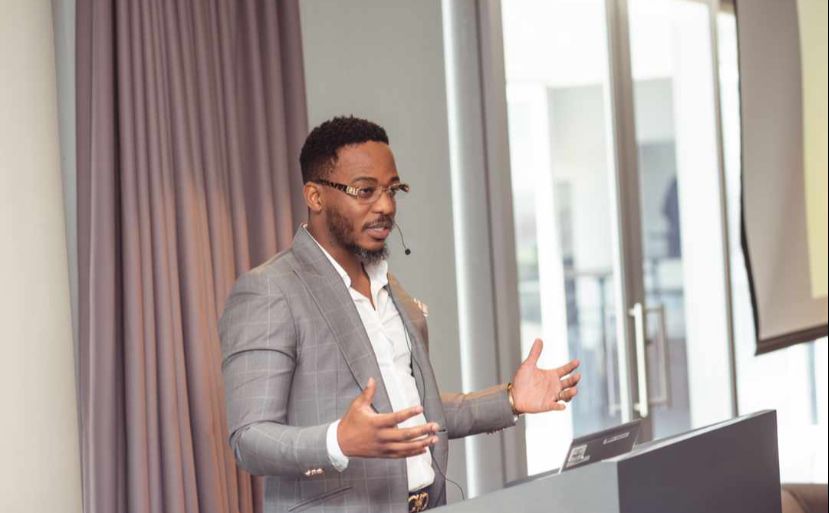 UNISA Principal and Vice Chancellor's Africa Intellectual Scholar Series lecture by Prof. Tal Edgars
UNISA Principal and Vice Chancellor's Africa Intellectual Scholar Series lecture by Prof. Tal Edgars
University of South Africa
June 30, 2022
Prof Puleng LenkaBula, Principal and Vice Chancellor of the University of South Africa (Unisa), will be hosting the 1st lecture of the Africa Intellectual Scholar series. This year’s lecture will be delivered by his Excellency Prof. Dr. Ambassador Tal Edgars, under the topic “the new frontier – Africa: where do we stand?”
His Excellency Prof. Dr. Ambassador Tal Edgars, Q.C is a global multi- award winning, well known business authority, diplomat and a cutting-edge thinker with an outstanding record in planning, managing and executing highly successful private and public sector initiatives in Africa, Europe, America & Asia. He has an academic, diplomatic and international civil service background with a global inclination and provides quite extensive domestic best practices in Africa, He is Africa’s leading authority and informed voice on knowledge of foreign policy community, Growth and Competitiveness Practice, complex negotiations, strategic foresight, government affairs, entrepreneurship, investment policies, brand strategy and how countries & businesses can be active participants in their own development.
Prof. Dr. Ambassador Tal Edgars is currently the Chairman GBSH Consult Group Worldwide. He is also the Chair of the Master Task Force team in South Africa on Social Development and Social Entrepreneuship.
The Africa Intellectual Scholar Series, Knowledge Systems and Africa Futures Programme, is part of the Principal and Vice Chancellor’s Projects at Unisa. This programme is also part of a series of Academic and Public Lectures, Business/ Academic Roundtables aimed at promoting innovative ideas, debates, discussions and research ingenuity on discourses and processes of envisioning and constructing Africa’s development and its futures.
The lecture is a continuation of the African Intellectuals Project, Knowledge Systems and Africa Futures Programme, which is part of the Principal and Vice Chancellor’s Projects at Unisa
See publication
Tags: Business Strategy, Culture, Design Thinking
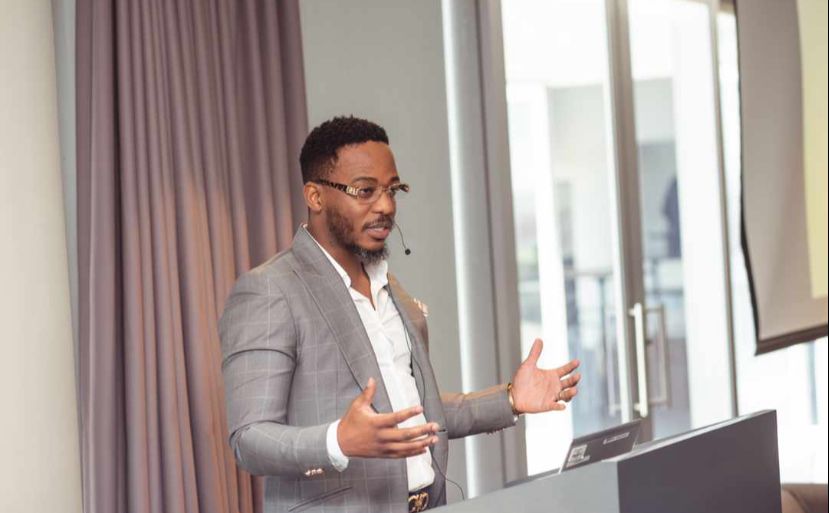 Prof Tal Edgars
Prof Tal Edgars
Figshare
January 11, 2023
He is a multi- award winning, well known business authority, seasoned diplomat & a cutting edge thinker with an outstanding record in planning, managing and executing highly successful private and public sector initiatives in Africa, Europe, America & Asia. He has an academic, diplomatic and international civil service background. Africa’s leading authority and informed voice on knowledge of foreign policy, contract theory, Growth and Competitiveness Practice, complex negotiations, strategic foresight, government affairs and how countries & businesses can be active participants in their own development.
See publication
Tags: Leadership, Culture, Diversity and Inclusion


 The politics of Identity in Africa: Diversity and Inclusion
The politics of Identity in Africa: Diversity and Inclusion
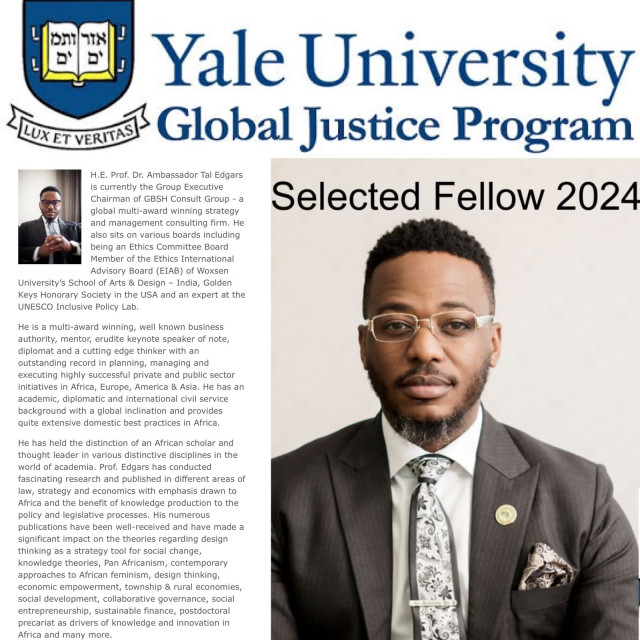 Prof Tal Edgars - Yale GJP Fellow
Prof Tal Edgars - Yale GJP Fellow
 Role of Women in Shaping Foreign Policy
Role of Women in Shaping Foreign Policy
 Can South Africa Make the Great Shift? Why financial planning needs to go holistic.
Can South Africa Make the Great Shift? Why financial planning needs to go holistic.
 WHAT THE GLOBAL ECONOMY LOOK LIKE IN 2023?
WHAT THE GLOBAL ECONOMY LOOK LIKE IN 2023?
 The SA Board of People Practices - People Factor 2022 - The future of work and ever-growing importance of L&D
The SA Board of People Practices - People Factor 2022 - The future of work and ever-growing importance of L&D
 The economics of apartheid and racial inequality by H.E. Prof. Dr. Amb. Tal Edgars
The economics of apartheid and racial inequality by H.E. Prof. Dr. Amb. Tal Edgars
 ANALYSIS: UNITED NATIONS’ PERFORMANCE IN THE LIGHT OF CONTEMPORARY GLOBAL CHALLENGES by Prof Tal Edgars
ANALYSIS: UNITED NATIONS’ PERFORMANCE IN THE LIGHT OF CONTEMPORARY GLOBAL CHALLENGES by Prof Tal Edgars
 The viability and economics of township economies
The viability and economics of township economies
 Futureproofing through learning and development by using design thinking: A case study of South Africa
Futureproofing through learning and development by using design thinking: A case study of South Africa
 UNISA Principal and Vice Chancellor's Africa Intellectual Scholar Series lecture by Prof. Tal Edgars
UNISA Principal and Vice Chancellor's Africa Intellectual Scholar Series lecture by Prof. Tal Edgars
 The future of work and ever-growing importance of Learning and Development
The future of work and ever-growing importance of Learning and Development
 Prof Tal Edgars
Prof Tal Edgars